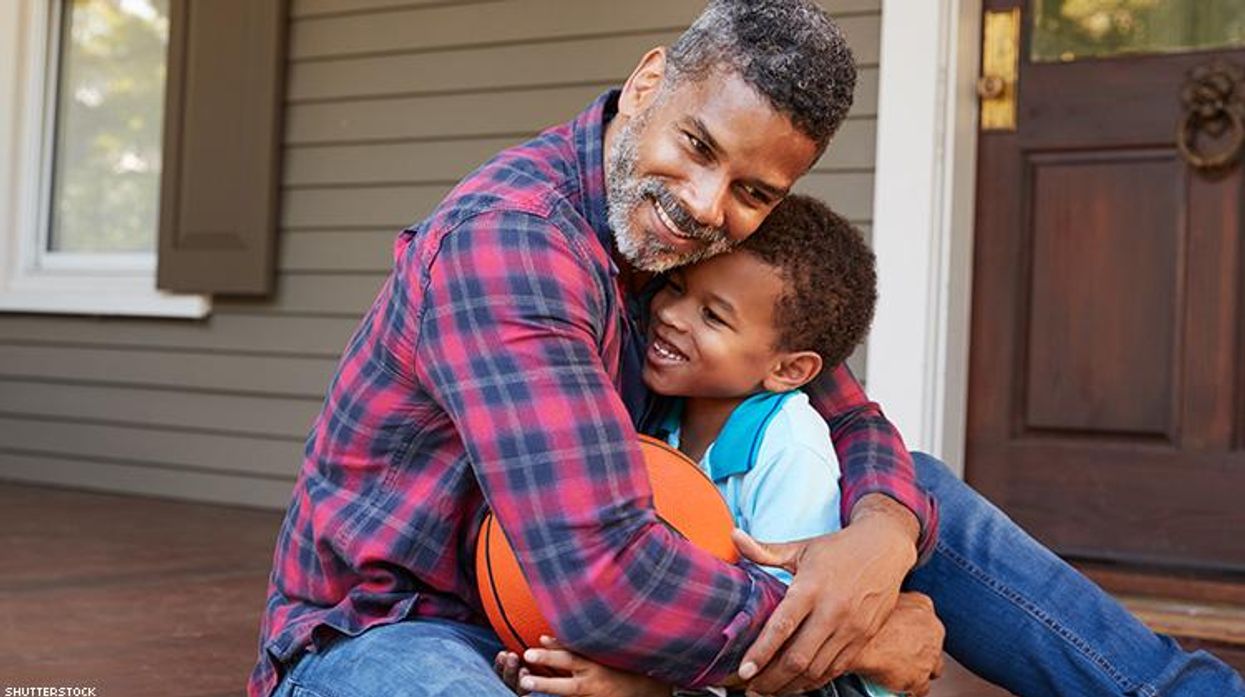Voices
Proactive Love, Not Reactive Discipline, Will End Toxic Masculinity

It's imperative that boys are shown affection and empathy from the men in their lives.
February 13 2019 2:36 AM EST
By continuing to use our site, you agree to our Privacy Policy and Terms of Use.

It's imperative that boys are shown affection and empathy from the men in their lives.
"Men need to hold other men accountable. To say the right thing. To act the right way. In ways big and small," urges the now infamous Gillette ad. The men's wellness brand is taking a stand against traditional notions of masculinity, and advocating for societal change. Its campaign launched at a time when conversation about sexual assault, substance abuse, and mental health is at an all time high, fueled by widespread social movements such as #MeToo.
Consistently at the center of these conversations are boys and men. Article after article deconstruct every behavior, subtle and not-so-subtle, in which they perpetuate physical and emotional violence against women, other men, and themselves. Frequently the call-to-action is similar to Gillette's: we need to stop this behavior when it starts. The boys of today become the men of tomorrow, and therefore we need to discipline our boys when they don't keep their hands to themselves, yell or talk over others. This reactive parenting rhetoric, i.e."as a boy you cannot do X, Y, or Z because it's bad" reframes masculinity as something that needs clear guardrails.
But it's not masculinity that inherently needs to be relegated -- it's the harmful behavior learned over time. Talking about masculinity as synonymous with toxicity is regressive for boys. I believe that by teaching boys core values like empathy, respect and self-love, we can reframe the conversation about masculinity in a positive light and promote healthy behavior from the start. This approach teaches boys to proactively be better, rather than retroactively, and forces men to be role models and unlearn any toxic behavior.
What I find the Gillette ad communicated really well is the importance of male-to-male interaction. For many of boys, the first significant male role model they have in life is their father, but that relationship can often be complicated. This is because the traditional masculine archetype values independence, competition, and power. Research shows that adult men are significantly more reluctant to express vulnerability, specifically feelings of loneliness or sadness, than women. If their fathers don't cry, take a break, or show physical affection, sons won't either.
"Teaching boys how to express their emotions adequately is the key to helping them become emotionally expressive. These lessons will have a positive effect on their life in the future," Henry Montero wrote in the article, "What is Toxic Masculinity and Why Does It Contribute to Depression in Men?"
Positive, affectionate relationships with men are essential to the healthy development of boys. Family life scholars Mark Morman and Kory Floyd argue that "few communicative behaviors may carry greater importance for the development, maintenance, and satisfaction of personal relationships than the communication of affection." They also found that lack of affection can have dire consequences later in life. Unsurprisingly, the male suicide rate is 3.53 times higher than that of women, and it continues to rise. Many refer to the male suicide rate as a "silent epidemic;" it is a leading cause of death in many countries around the world.
I was inspired to write this post after spending a weekend away skiing in Vermont with a large group of friends. One family came with two young boys, both under the age of five. During the trip, I took notice of how gentle and affectionate the father was with his boys, never once raising his voice when they misbehaved. He was not one to pass up a big bear hug, either. The other men on the trip were equally gentle and warm to the boys, playing games with them or acting as a source of comfort when one of them cried. I was assured warm male relationships have power; not once did I see the little boys fight or argue with each other.
Society desperately needs to rid the stigma of male-to-male interaction, a shift that begins with male role models. Men giving hugs and affirmation, asking for help, showing vulnerability, talking about mental health, crying -- are all behaviors that should be normalized. By giving a boy the tools to practice respect, empathy and communication, he can redefine for himself what it means to be a man. No person, brand, or societal norm should tell you how to be. Thus why we should be raising boys in environments filled with male-to-male communication and affection, allowing them to foster healthy relationships with themselves and others. That way they can be free to discern right from wrong on their own terms, and harmful behavior will no longer be an inevitability.
WILLIAM LEPAGE is a global analyst for OgilvyRED, a division of Ogilvy & Mather.
Charlie Kirk DID say stoning gay people was the 'perfect law' — and these other heinous quotes